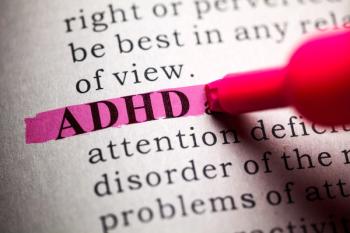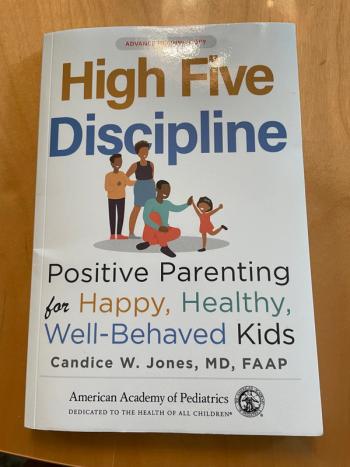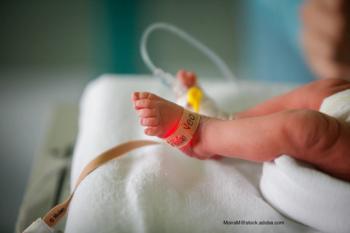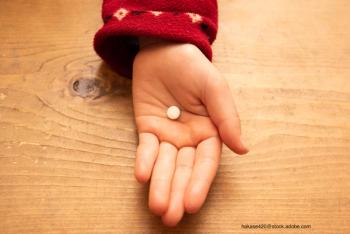
In a clinical study of healthy adults, Dyanavel XR tablets were deemed to be bioequivalent to amphetamine extended-release oral suspension in patients with attention-deficit/hyperactivity disorder (ADHD) by the US Food and Drug Administration (FDA).


In a clinical study of healthy adults, Dyanavel XR tablets were deemed to be bioequivalent to amphetamine extended-release oral suspension in patients with attention-deficit/hyperactivity disorder (ADHD) by the US Food and Drug Administration (FDA).

Dr. Tan shares her must-reads from the October issue.

New technology-based tools can help pediatricians to make an accurate diagnosis of autism spectrum disorder.

At the virtual 2021 American Academy of Pediatrics National Conference & Exhibition, Hilary McClafferty, MD, FAAP, discusses evidence-based management tools to relieve stress and burnout for pediatricians.

Using bell and pad alarm therapy is a typical therapy for enuresis in children, a study examines its efficacy in those with neurodevelopmental disorders.

A study has found that prenatal analgesic opioid exposure of 5 or more weeks is associated with a slightly elevated risk of attention-deficit/hyperactivity disorder (ADHD) in children compared to exposure of 4 weeks or less.

The pandemic caused the shut down of schools and resulted in virtual learning for most of the world's children and adolescents. How did they fare?

Recently, I talked to Contemporary Pediatrics' Editorial Advisory Board member Candice W. Jones, MD, FAAP, about her new book, "High Five Discipline: Positive Parenting for Happy, Healthy, Well-Behaved Kids," published by the American Academy of Pediatrics.

AZSTARYS (serdexmethylphenidate and dexmethylphenidate) is available for prescription to help provide rapid and extended duration of attention-deficit/hyperactivity disorder (ADHD) symptoms.

As more extremely preterm infants survive delivery, a study examines whether the advances that allowed for that survival also improve neurodevelopmental outcomes.

Although too much screen time isn’t beneficial to any child, could the developmental and behavioral impact of this be exacerbated in a child who was born at less than 28 weeks?

A study examines the effect of after-school activity participation on a child's attention-deficit/hyperactivity disorder (ADHD) severity.

Global prevalence of autism spectrum disorder is 1% to 2%, but little research has been done in non-White populations. An investigation offers some much-needed insight.

Stimulants are recommended as the first-line treatment for attention-deficit/hyperactivity disorder (ADHD). A study examines whether α2-adrenergic agonists could be effective as well.

The US Food and Drug Administration has given marketing authorization to Cognoa, Inc. for their device to aid in the diagnosis of autism spectrum disorder (ASD).

A study examines if promoting positive behaviors including masking leads to improved face covering in children with autism spectrum disorder and/or attention-deficit/hyperactivity disorder.

Is there value in predictive testing for autism spectrum disorder (ASD)? A study examines the ethics.

The US Food and Drug Administration (FDA) approves first novel non-stimulant medication to treat attention-deficit/hyperactivity disorder (ADHD) in children in a decade.

Unfortunately, disparities in health care are nothing unusual. A report examines if there are disparities in attention-deficit/hyperactivity disorder (ADHD) diagnosis and treatment due to race and ethnicity.

A recent investigation examines if people with autism spectrum disorder may be at greater risk of both death by suicide and suicide attempts.

Pica can be a life-threatening condition. An investigation examines whether children with autism spectrum disorder and other developmental disorders are at greater risk of having it.

Plagiocephaly has become an increasingly common diagnosis for infants. A study examines whether it could offer a clue about the child's risk of developmental delay.

A presentation at the virtual 2020 American Academy of Pediatrics National Conference & Exhibition reminded practitioners of the 3 guiding principles of psychopharmacology.

What to consider when keeping children with autism spectrum disorder safe from getting lost.

COVID-19 has created many stresses: mental, job-related, and health. For some caregivers, these stressors are complicated further with caring for a child with attention-deficit/hyperactive disorder (ADHD).